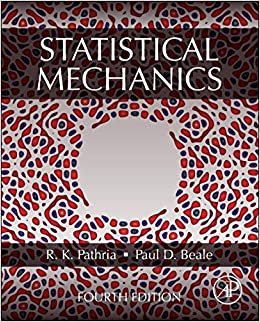Calculate the Bose-Einstein condensation temperature for a system with energy density of states given by [g(varepsilon)=frac{alpha}{epsilon_{1}}left(frac{varepsilon}{epsilon_{1}} ight)^{sigma}]
Question:
Calculate the Bose-Einstein condensation temperature for a system with energy density of states given by
\[g(\varepsilon)=\frac{\alpha}{\epsilon_{1}}\left(\frac{\varepsilon}{\epsilon_{1}}\right)^{\sigma}\]
for one-particle energy scale \(\epsilon_{1}\), power \(\sigma\), and constant \(\alpha\). Express the critical temperature in terms of \(\epsilon_{1}, \sigma, \alpha, N\), and the \(\zeta\)-function. Show that the critical temperature tends to zero as \(\sigma \rightarrow 0\). Next, calculate the energy density of states for a \(d\)-dimensional harmonic oscillator, and relate the parameters \(\epsilon_{1}, \sigma\), and \(\alpha\) to \(\hbar \omega\) and \(d\). Treating \(d\) as a continuous parameter, find the \(d\) and \(N\) dependence of the condensation temperature for \(d \approx 1\). Determine the analytical behavior of the condensate fraction and heat capacity below the condensation temperature for \(d\) close to 1.
Step by Step Answer:






